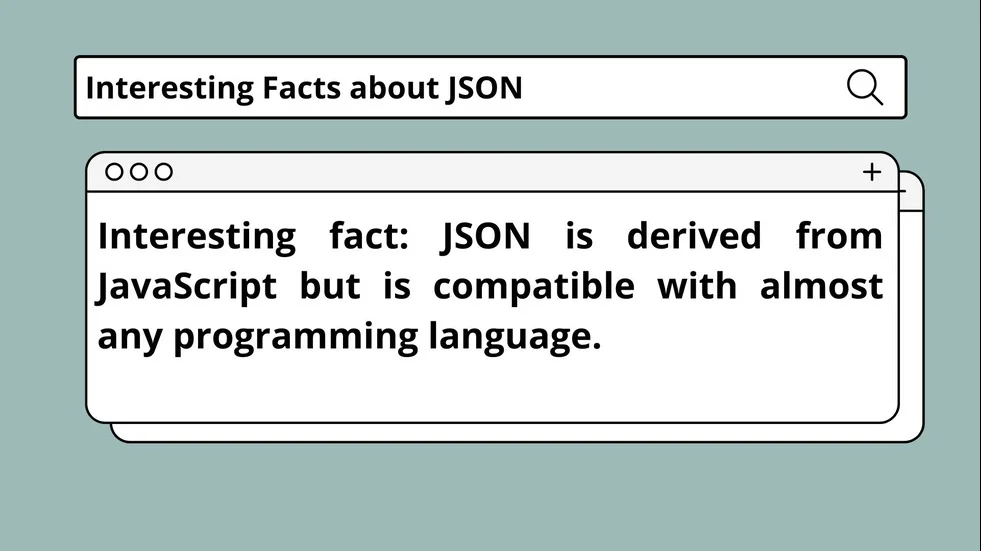Interesting Facts about JSON
Get to know about JSON

In this blog we will look into
Language support for JSON
One of the most compelling reasons to embrace JSON (JavaScript Object Notation) is its remarkable compatibility across multiple programming languages. This lightweight data interchange format is designed to be easily readable and writable by humans while remaining straightforward for machines to parse and generate. As a result, developers can leverage JSON seamlessly in various environments, making it an ideal choice for cross-platform compatibility.
Cross-platform compatibility
Languages such as Python, Java, C#, and Ruby support JSON natively or through simple libraries, allowing programmers to integrate it effortlessly into their applications. This versatility means that whether you’re building a web application in JavaScript or processing data in Python, you can rely on JSON as a common language for data exchange. By utilizing JSON, developers can streamline communication between different systems and platforms without the headaches of complex conversions or compatibility issues. . This ease of use not only accelerates the development process but also enhances collaboration among teams using diverse programming languages. Moreover, JSON’s lightweight structure ensures that data is transmitted quickly and efficiently, making it an ideal choice for applications that require real-time data processing or interaction with APIs. Furthermore, the widespread adoption of JSON across various frameworks and tools signifies its importance in modern software development.
Programming languages using JSON
For instance, when working with RESTful APIs, JSON serves as By adopting this flexible format, developers position themselves to build scalable applications that can adapt to future technology changes while maintaining robust performance across platforms and devices. The standard format for requests and responses, enabling developers to implement features seamlessly without worrying about serialization details. This standardization further reinforces its role as a backbone for web services. Additionally, integrating JSON with databases like MongoDB or PostgreSQL is becoming increasingly common due to their native support for JSON documents. This compatibility simplifies tasks such as querying complex data structures directly within the database without needing extensive transformations. In conclusion, embracing JSON not only fosters efficiency in coding practices but also guarantees smoother interactions between disparate systems.
In today’s diverse programming landscape, choosing a format that promotes interoperability is crucial. With its broad language support and ease of use, JSON stands out as an essential tool for any developer looking to enhance their projects’ efficiency and effectiveness. Embrace JSON today and unlock the potential of seamless integration across your favorite programming languages!